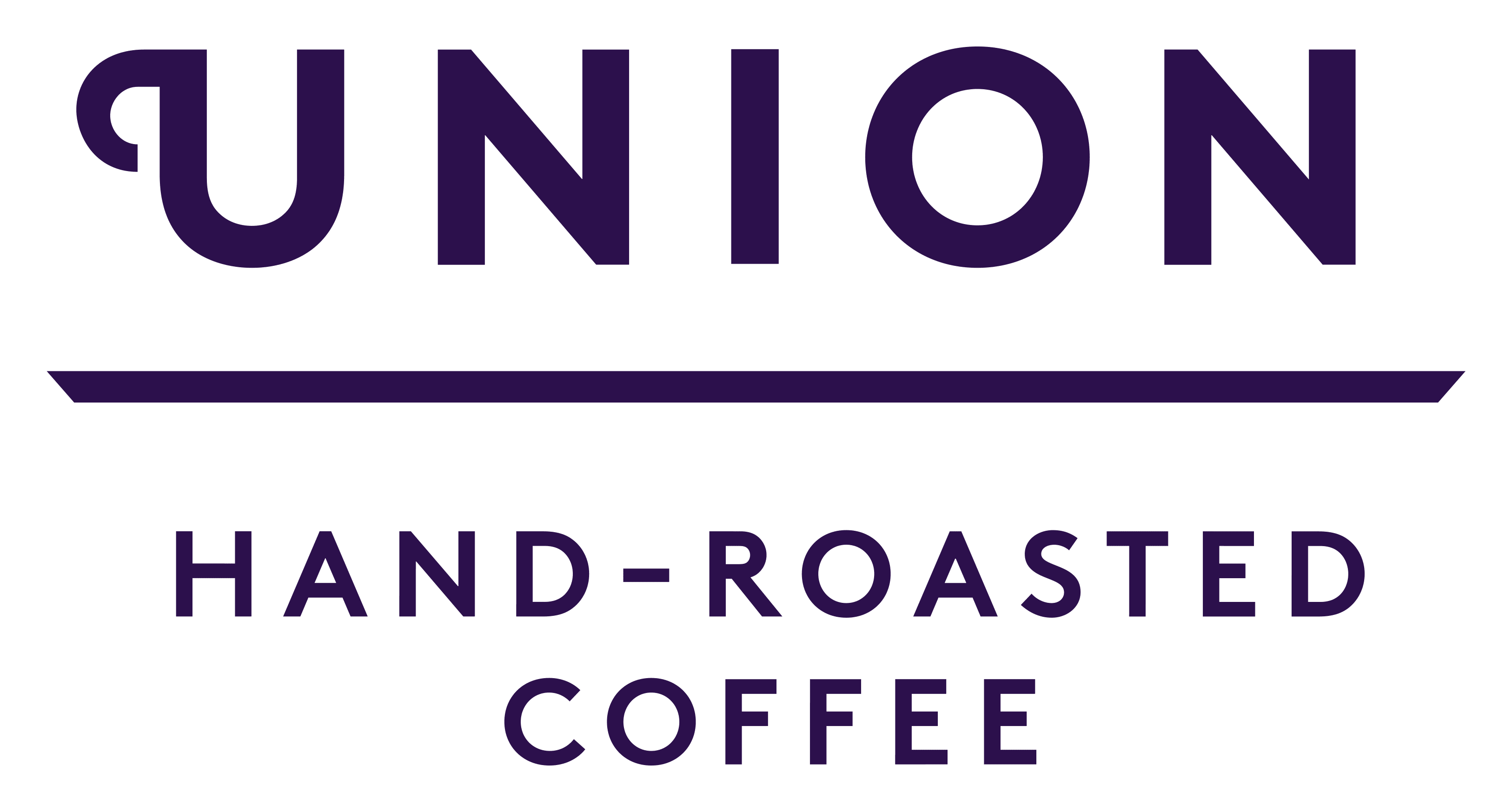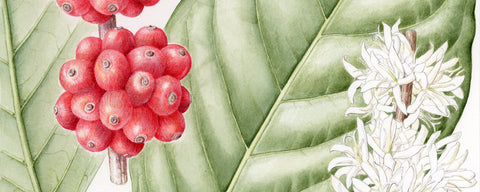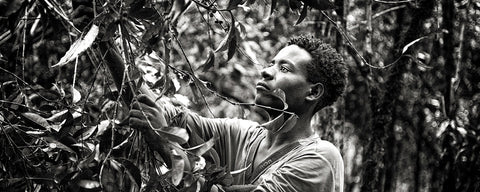A comforting staple in your daily routine or a must-have before a busy day, coffee is entrenched in our daily lives. Here at Union, enjoying freshly-roasted coffee which tastes delicious is our top priority – and we also enjoy the caffeine buzz!
As with all food and drinks, too much of one thing isn’t good for you. We all process caffeine at different rates so knowing your own limits and understanding coffee caffeine content is a good way to monitor your intake.
How much caffeine is in coffee?
The amount of caffeine will be different from cup to cup. Coffee caffeine content varies due to a number of factors such as variety, roast level and grind size.
There’s an average of 96mg of caffeine in one cup of coffee (8 fl oz / 240ml) when filter brewed using 60g of ground coffee per litre. There’s an average of 63mg of caffeine in a single shot of espresso (1 fl oz / 30 ml) when using 7g of coffee.
It’s important to note that there’s a lot of variation in coffee dosage used across the industry, and this will affect the caffeine content in your cup of coffee. These values are taken from the US Department of Agriculture (USDA).

Is there more caffeine in espresso than filter coffee?
No! Despite the classic intense taste of espresso, on average there is more caffeine per serving in a filter coffee. Espresso contains more caffeine per ml (around 2.1mg per ml on average) than filter coffee (around 0.4mg per ml on average), but the serving is a lot smaller meaning the total caffeine in a single espresso is less than the total in a cup of brewed filter coffee.
Check out some of our best coffees for brewing espresso and filter…
How much caffeine is there in decaf coffee?
Decaf coffee is a great way to enjoy the flavour and experience coffee, without the effects of caffeine. An average cup of brewed decaf (8 fl oz / 240ml) contains 1 – 3mg caffeine according to USDA. Check out our delicious decaf range including our bold Decaf Blend and single origin, Decaf Maraba.
At Union, we decaffeinate our coffee using the CO2 process. Although it sounds quite scientific, it’s a natural process which only uses water and carbon dioxide. Water is steamed onto the unroasted coffee beans to open their pores and enable liquid CO2 to absorb the caffeine, this is then pumped into an “evaporator” where it’s converted into a gas again to be separated. Want to learn more?
Check out our blog on how we decaffeinate our coffee, read it here.

How long does caffeine stay in your system?
For some, enjoying a cup of coffee after dinner is the best way to end the night, for others, it’s a guarantee you’ll stay wide awake. We all metabolise caffeine at different rates but the average half-life (the time it takes for total the caffeine you have consumed to reduce by half) of caffeine in the blood of a healthy individual is 5 hours. For example, if you drink 96mg of caffeine, in 5 hours you’ll have 48mg still in your system, 5 hours after that you will have 24mg left, and so on.
Does this differ from person to person? Yes! Caffeine metabolism is heavily affected by environmental factors (e.g. smoking, pregnancy, bodyweight, altitude) as well as genetic factors (some people can have faster or slower caffeine metabolism based on variations in their genetic makeup).
What factors affect the amount of caffeine in coffee?
Inside every coffee bean you’ll find a number of organic materials such as acids, sugars, proteins and of course, caffeine. During brewing, these materials are extracted from the coffee in varying degrees. Calculating the caffeine content for an average cup is always going to be difficult due to a large number of factors that affect the extraction:
- Coffee dose – the higher the dose of coffee you’re using for a cup, the higher the caffeine content - naturally!
- Water dose – the more water you use when brewing, the more caffeine you may potentially extract
- Water hardness – water hardness is a measure of the number of certain minerals (Calcium and Magnesium ions) in water. Water hardness has a large effect on the extraction of different compounds found in coffee (including acids, flavour compounds and caffeine).
- Roast degree – caffeine is relatively stable at high temperatures, so it does not break down during the roasting process. If you weigh your beans before brewing, you may end up with more caffeine in your cup when using a darker roast coffee, as darker roast beans weigh less than lighter roast beans (due to moisture loss during the roasting process). Darker coffees are also more soluble, meaning you may be able to extract more of the caffeine present in dark roast coffee than a light roast.
- Grind size – when coffee is ground finely, there’s a larger surface area which results in higher extraction of all elements, including caffeine. Ensuring you know the best grind size for your preferred method is essential so you make the best of your coffee and aren’t under or over extracting. Use our grind guide to check which grind to use.
- Origin/varietal/density/species of the coffee bean – even prior to roasting, there are a number of factors which effect how a coffee may taste and how it extracts. This includes everything from species (we only roast Arabica coffee); varietals of coffee; the origin of the coffee and the effects of its climate and geography.


